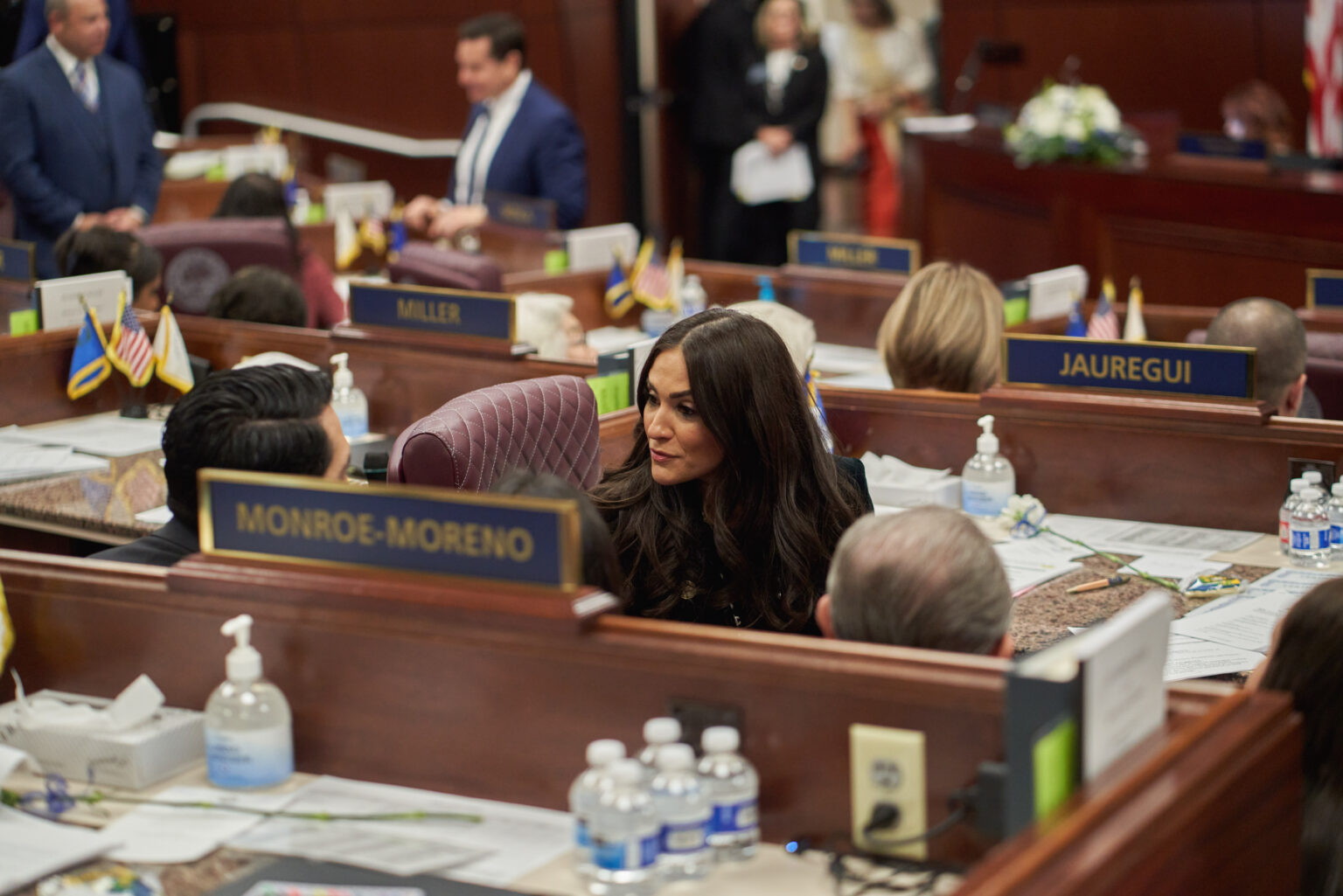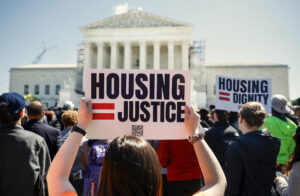6:05
News Story
Rent stabilization for seniors among a handful of bills proposed to address housing crisis
Amid rising housing insecurity, Nevada lawmakers are considering several measures to address skyrocketing rents and regulate rental application fees.
The first of three bills introduced this session proposing some limits on rent increases was heard Wednesday by the Assembly Commerce and Labor Committee.
Assembly Bill 298, sponsored by Democratic Assemblywoman Sandra Jauregui, would authorize rent stabilization for seniors and people with disabilities, and require landlords to return application fees to prospective tenants who weren’t screened.
The legislation, which is by far the narrowest version of rent stabilization being proposed during the session, caps rent increases at 10% for people older than 62 or rely on disability insurance benefits from July 1, 2023 through Dec. 31, 2024.
Jauregui said having it as a pilot program “gives us the opportunity to see if this is something that works for our state or not.”
“We are doing this with our most vulnerable population, our seniors 62 years and older and those on disability who don’t have an opportunity to make more money,” she said. “They are on a fixed income.”
The idea was floated last year by members of the Nevada Housing Coalition.
Separate, broader rent stabilization proposals being brought by state Sen. Pat Spearman and Assemblywoman Clara Thomas, both Democrats, would seek to prevent rent increases from exceeding the cost of living determined by the Nevada Housing Division. Neither bill has received a hearing so far.
On top of those proposals, lawmakers also heard a bill earlier in the week to stabilize rents specifically for manufactured homes.
Jauregui, who presented another bill Wednesday dealing with zoning issues related to the creation of housing, said both bills were “a labor of love” and came out of negotiations between industry groups and organizations representing tenants.
She noted the unique presence of representatives of the Nevada Association of Realtors and the Legal Aid Center of Southern Nevada sitting beside her in support during the bill hearing, saying it’s something “you don’t really see.”
The sheer volume of bills dealing with housing and tenant protections this session comes as social service providers and legal aid groups warn Nevada could be on the brink of an eviction crisis following pandemic-related assistance and resources expiring this year.
Nevada was contending with a housing crisis long before Covid-19, but the pandemic made it worse.
Jonathan Norman, the statewide advocacy, outreach and policy director for Nevada Coalition of Legal Service Providers, told lawmakers housing insecurity is rampant across various spaces.
While also representing people facing eviction, Norman said the organization’s clients include “children in foster care, adults in guardianship, elders who have been defrauded, families struggling to get education support for the special needs children, victims of human trafficking and those fleeing domestic violence.”
“The thread that ties all of our clients is housing,” he said. “Their legal issues vary but across every service area our clients are struggling with housing.”
It’s not just about addressing housing stock and rent.
Barriers, like unregulated application fees, also get in the way of people finding housing.
“When tenants are competing for housing in an ecosystem of housing scarcity, they often have to submit numerous applications and pay the associated application fees,” he said. “No landlord should see this as an opportunity to profit.”
Lawmakers proposed legislation in 2021 to rein in application fees and deposit fees. The bill passed the senate in a party line vote but later died.
AB298 offers modest regulations for applications by requiring landlords to refund fees if they don’t screen a tenant who applied for the unit.
“If ten applications come in for one unit and the landlord and property manager take that first application, then the fees for the other nine would be returned,” Jauregui said.
Democratic state Sen. Fabian Doñate also presented legislation, Senate Bill 78, earlier in March to rein in rental application fees and require some transparency around fees being charged for units.
Instead of requiring landlords to return fees for applications not processed like in Jauregui’s bill, SB78 prevents landlords from charging fees to other prospective tenants “unless the application or applications for that dwelling unit have been denied.”
AB 298 would also require rental agreements to include an appendix that outlines all the fees associated with renting the place.
Norman said the bill seeks to add transparency and to prevent landlords “who hide fees,” for example charging a fee to change a lightbulb or to pay rent.
“This bill reaches landlords who are operating in an unfair and frankly sneaky manner,” he said.
Similarly, Doñate’s bill would require landlords to list fees either on the front page of the application or in an addendum that would be signed by landlords.
Despite support from the Nevada Association of Realtors, several property management groups and the Nevada State Apartment Association opposed Jauregui’s bill to stabilize rent for seniors.
“We definitely support the disclosure of fees and not making application fees a revenue source,” said John Sande, a lobbyist with the Apartment Association. “We still have issues, philosophically, with rent control.”
Varying groups from the Vegas Chamber to the Progressive Leadership Alliance of Nevada supported the bill.
Our stories may be republished online or in print under Creative Commons license CC BY-NC-ND 4.0. We ask that you edit only for style or to shorten, provide proper attribution and link to our website. AP and Getty images may not be republished. Please see our republishing guidelines for use of any other photos and graphics.




